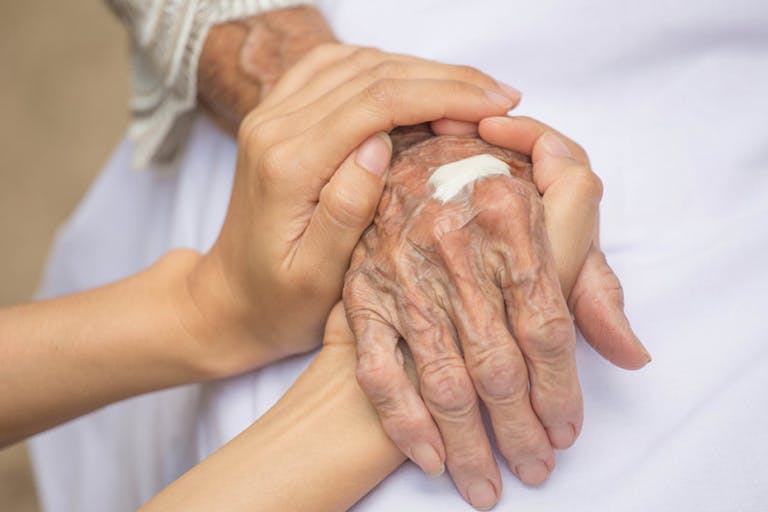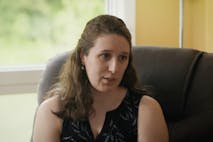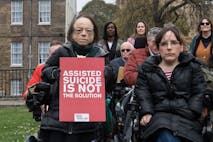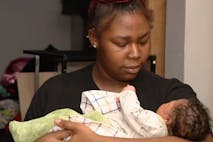
Texas library can keep sexually explicit material from minors... for now
Sheena Rodriguez
·
Concern grows over Ontario's broad and rapid 'assisted dying' approvals
A new report from the MAiD Death Review Committee (MDRC) in Ontario has raised concerns over the rapid approval process for 'medical assistance in dying' as well as the fact that those who refuse medical treatment for their conditions are eligible for MAiD.
Assisted suicide, or medical aid in dying (MAID), was legalized in Canada in 2016.
Canada has since become one of the world leaders in assisted suicide and euthanasia.
In Ontario, specifically, reports have indicated that people are being killed because of loneliness, homelessness, and poverty. Many of these deaths are illegal.
The latest report is raising concerns that the process of assisting patients in killing themselves is easier and faster than providing them with real health care.
Canadian Affairs obtained the latest MDRC report, noting that patients with incurable, but not fatal, conditions who refused treatment were being approved for MAID.
One man, named "Mr. C" in the report, had a tremor; he applied to be killed via assisted suicide. A widower, he said he felt it would be impossible to find another partner due to his new disability. He said he felt he did not have "much to offer in a new relationship” and yet was experiencing "profound hopelessness and loneliness." His application was approved, with the MAID provider noting his grief and emotional suffering as reasons to die.
A woman called "Mrs. A" applied for MAID due to severe obesity and associated chronic conditions, like Type 2 diabetes. She declined every possible treatment and was still approved, even though the MAID evaluators noted she had a good prognosis and her condition could improve. She was offered surgery, medication, and other supports, but she refused them all. It was noted that she “no longer had the will to live," and yet, instead of treating her depression and suicidal ideation, she was killed.
"Mr. B," in his 60s, had cerebral palsy, but was able to be fairly independent; he could push himself in his wheelchair, get himself in and out of the chair, and use the toilet on his own. But he became afraid that he would lose his independence as he aged, so he stopped eating and drinking. Once again, as with Mrs. A, his suicidal ideation was not treated. Instead, he was merely approved for MAID and killed, as his decision to starve himself had damaged his kidneys. Even some of the MAID assessors were disturbed by this, as noted in the report:
Framing such dependency as evidence of an irreversible decline in capability potentially risks introducing an ableist perspective, wherein inherent disability-related needs are mischaracterized as functional decline that is aligned with an irreversible trajectory, rather than a person’s basic care needs.
In another report from Canadian Affairs, it was noted that an elderly woman was killed the same day she applied for MAID, despite having evidence that her request was made due to caregiver burnout from her spouse - further illustrating how the fear of being a burden pushes people to consider assisted suicide.
Though killing someone the same day or the day following their application would appear to be problematic, members of the committee disagreed, claiming that “same day or next day provisions are not inherently problematic.”
Article continues below
Dear Reader,
Have you ever wanted to share the miracle of human development with little ones? Live Action is proud to present the "Baby Olivia" board book, which presents the content of Live Action's "Baby Olivia" fetal development video in a fun, new format. It's perfect for helping little minds understand the complex and beautiful process of human development in the womb.
Receive our brand new Baby Olivia board book when you give a one-time gift of $30 or more (or begin a new monthly gift of $15 or more).
The assisted suicide industry is inherently exploitative, and data has made it clear that people do not always pursue death because they fear suffering from a long, painful disease.
Most choose assisted suicide because they are afraid of losing independence and becoming a burden on their loved ones, as seen in the most recent report from Ontario. Another frequently-cited reason for choosing death is the fear of not being able to enjoy life as they did before.
And yet, while assisted suicide is cited as a peaceful, pain-free way to die, in reality, it can be excruciating, and take hours, even days, to die.
Assisted suicide is incredibly harmful. Once suicide is made socially acceptable for certain individuals, it becomes expected; then, it is often expanded to include others in its deadly grip.
Live Action News is pro-life news and commentary from a pro-life perspective.
Contact editor@liveaction.org for questions, corrections, or if you are seeking permission to reprint any Live Action News content.
Guest Articles: To submit a guest article to Live Action News, email editor@liveaction.org with an attached Word document of 800-1000 words. Please also attach any photos relevant to your submission if applicable. If your submission is accepted for publication, you will be notified within three weeks. Guest articles are not compensated (see our Open License Agreement). Thank you for your interest in Live Action News!

Sheena Rodriguez
·
International
Angeline Tan
·
International
Cassy Cooke
·
International
Cassy Cooke
·
International
Bridget Sielicki
·
International
Angeline Tan
·
International
Cassy Cooke
·
International
Cassy Cooke
·
Politics
Cassy Cooke
·
Pop Culture
Cassy Cooke
·
Human Interest
Cassy Cooke
·